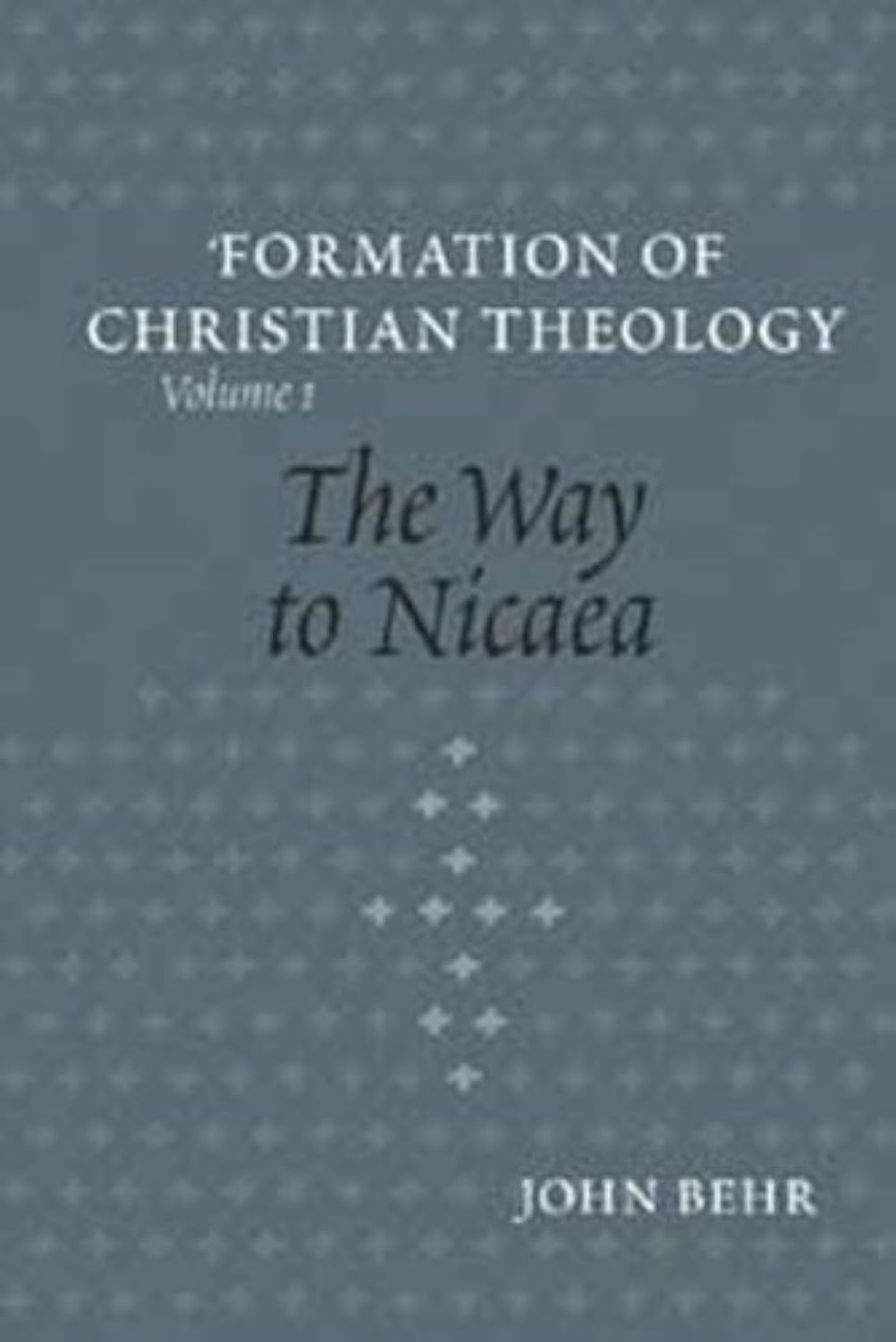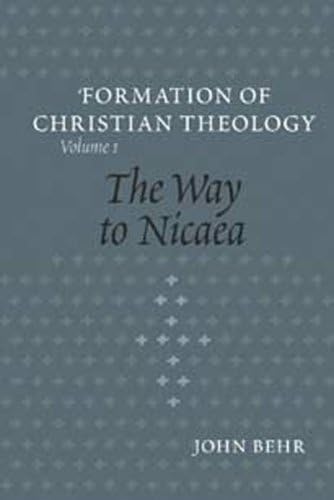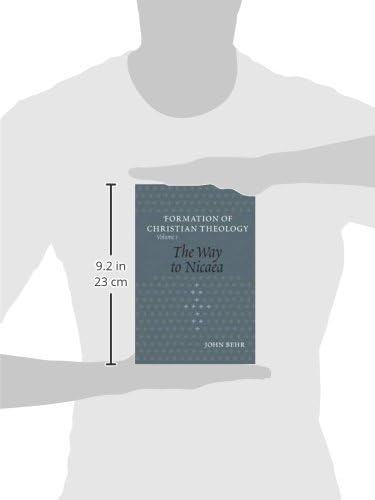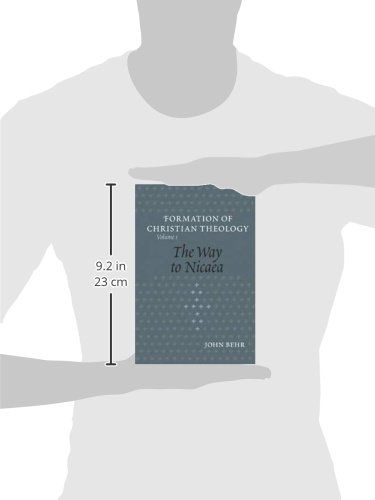




Full description not available
K**D
Superb
Thoroughly Academic, and from an Orthodox standpoint. This book engages your mind with the Orthodox understanding of scripture, and insists that as you engage it, you must encounter the risen Christ, and be changed; otherwise you are not genuinely discerning the Truth or Christ.
K**N
An Orthodox view of Canon and Canonicity
It is rare for the Orthodox to address issues of canon and canonicity. Fr. John Behr is the only one (other than Fr. Georges Florovsky) to address these issues.
J**1
Five Stars
Very informative book.
G**G
Excellent review and defence of Nicene Orthodoxy
In most churches today there is a profound crisis of faith and belief. A lot of people rightly are aware that a 'crisis' exists (as Catholic theologian Richard McBrian put it) but often people misidentify both the problems and the solutions. For example, I think the biggest problem for Christians today is that Christian faith has been profoundly poisoned by the political dynamics of the West since the enlightenment, particularly the divisions between 'left' and 'right.' While I personally identify more as a 'liberal' or 'left' rather than 'conservative' or 'right-wing' person, both sides of the political divide have profound problems, especially when they mix theology and politics.This is not the place for an analysis of 'political theology' (if that is even possible). But too often problems of belief are identified simply with a person's political ideology or stance on certain political questions. For example, right-wing Catholics often rail against 'liberals' in the church as being to blame for all of the problems the church faces, from the decline in religious and priestly vocations to the falling away of people from attending Mass and so on and blame 'liberals' for diluting the church's orthodoxy, and often demand people who wish the church to reconsider teachings on some areas to adopt their belief system or liturgical style of worship (often focused on the TLM) or leave. Similarly, liberals sometimes blame conservatives for being fundamentalists, hidebound to tradition, blind and blinkered to the good aspects of culture and for being pessimists when a dose of pessimism and conservatism might be what the church needs. Sadly, I think in the end both sides completely miss the point.I think this is particularly the case with the crises around the Doctrine of the Trinity and the Nicene Creed. Conservative and Liberal Christians in my view should be very worried in the way many Christians (practicing or not) seem to either reject the doctrine of the Trinity and the Creed, regard it as irrelevant, or feel free to dissent from the Creed and remain in the church. As Karl Rahner quipped, most Christians are probably actually 'heretics' in that they are either stringent monotheists (simply believe in a 'God' as do Muslims and Jews) or 'Tri-theists' (believe in Three Gods, not one God in three persons). The undivided church made it absolutely clear that the Nicene Creed and the doctrine of the Holy Trinity however, were as absolute and fundamental to the church then as some Christians today view scripture (Protestants), the structure of the church (Catholics) or sacred tradition (Orthodox). Several ecumemical councils of the highest authority, along with many saints, theologians and Bishops, made it absolutely clear that the Nicene Creed and the Trinity were essential to salvation and to remain in the church. These included the Cappadocian Fathers and St Athanasius in the East, St Ephrem the Syrian in the Syriac church, and St Augustine, Ambrose, Jerome, Leo the Great, Gregory the Great and others in the West made abundantly clear in their writings. Even today, if there is one thing that unites Christians across widely divergent confessions, churches and confessions, the Nicene Creed and the doctrine of the Trinity generally remain a fundamental agreed point of unity.Yet, many people surveyed who identify as Christians tend to disregard the Nicene Creed as irrelevant, and prefer to identify God as some vague 'Being,' 'Higher Power' or even simply the universe, and find the Trinity useless, complex, irrelevant or simply 'An old man, Christ on the cross and a dove' to use one caricature. Others see conceiving God as 'Father, Son and Spirit' to be sexist (in that it seems God is somehow three men or male in essence), out of date (God is three Kings or one King sitting in heaven judging the world) or incoherent (3=1?).The Way to Nicea by Orthodox priest and theologian John Behr offers an invaluable retrieval of the Nicene tradition, and he spells out in detail how and why the idea of God being a Trinity and the Nicene creed became so fundamental to the early undivided church, and why after a bitter struggle, the early church made the belief in the Triune God as formulated in the Nicene Creed as important to salvation as faith in Christ, the scriptures or accepting the structure of the church.In three volumes, Behr traces the development of the Trinitarian dogma from Origen through to Nicea itself, and doesn't shy away from the odium theologicum that sadly often accompanied the debates between the 'orthodox' and 'heretics' such as Arius and Eunomius. Behr also shows that through careful analysis and reading of the Eastern doctors and fathers in particular, why God needed to be a) seen as a Trinity and b) why these fathers stuck so strongly to the Nicene formulation was so essential, even though all accepted ultimately that God in himself is an infinite mystery we can only catch vague glimpses of in this life at least (as Gregory of Nyssa remarks, conceptual theology offers only a dim trace or reflection of God's ineffable nature, but at the same time we must hold to the Creed exactly as formulated if we are to be saved).Behr's works offer both a valuable defence in my view of both the Trinitarian dogma and the Nicene Creed as formulated by the councils, and also why the Nicene creed remains the key and abiding standard of orthodoxy for the church (or should do). I only wish this lesson would be learned by more Christians, who argue over matters of politics and morality as bitterly and vehemently as the Fathers of the church once did with their opponents, even if arguably one's position over an issue such as contraceptive use, divorce and remarriage, certain liturgical rubrics and observances, or the exercise of power in the church were the be-all and end all of both Christian orthodoxy, church membership, and one's standing before the All-Holy God who every saint and decent theologian recognises we can only be debtors and can only glimpse vaguely as an enigma. For me, too little time is spent on essentials like the Trinity and the Creed, while too much energy and effort is expended by people who claim to know (rather heretically) the mind and will of the ineffable God with almost perfect certainty and clarity, and to judge others as if they had God's leave to do so. If Christians had more orthodoxy as well as humility in the right areas, then I think the churches would communicate the Gospel far more effectively to the world than they currently do.
W**F
The Way to Nicaea (The Formation of Christian Theology, V. 1)
The Way to Nicaea (The Formation of Christian Theology, V. 1) by John Behr.This book teaches about TRUE ORTHODOX CHRISTIANITY, not the fragmented christianity that has been fallen away from the original design of the church Jesus founded on the 1st day of Pentecost. From the begining there was and still is THE ONE HOLY catholic and apostolic church.This book explains to the reader the importance of staying on the narrow path, for wide and broad is the path to perdition. By understanding the TRUE christianity in it's purest form one can rest assure that they will not drift into heresies and manmade errors from all the reformations that took place after the great SCHISM of 1054AD.AFTER the west separated from the east, All denominations came of the RCC, each drifting further and further from the true church. With each separation , reformation new heresies and errors were established in new created churches.This book will keep you focused on the true christian theology based on the church fathers and not manmade missinterpretations of the word of Christ. Do not forget to complement this book with PART II called FORMATION of CHRISTIAN THEOLOGY volumes I and II "The Nicene faith"Glory be to God for having such rich food for the soul and for having the TRUE church shown in text in todays antichristian world.
Trustpilot
1 month ago
3 weeks ago